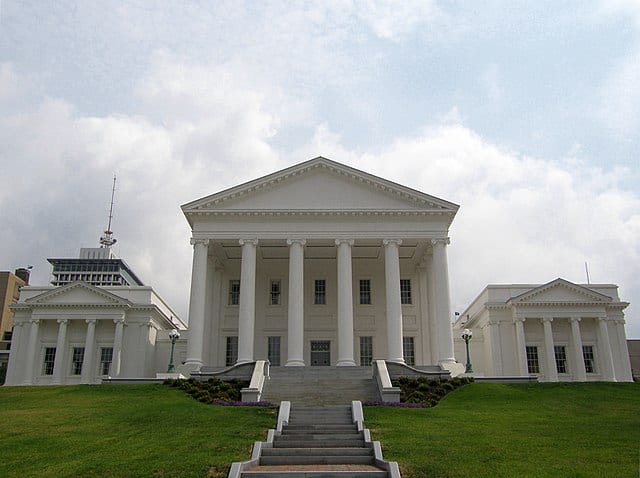 Virginia State Capitol.jpg by Jim Bowen is licensed under CC BY-SA 2.0
Virginia State Capitol.jpg by Jim Bowen is licensed under CC BY-SA 2.0
A Tuesday report from the Secretary of Finance reveals that Virginia’s revenue collections were 2.7 percent higher than initial forecasts during the first 10 months of fiscal year 2023. That translates to a surplus of approximately $500 million, even after a $4 billion tax cut that was signed into law just last year. Such a healthy fiscal environment indicates yet another opportunity to cut taxes and provide citizens with additional relief.
Governor Youngkin and the Republican-controlled Virginia House of Delegates intend to capitalize on such an opportunity.
“Virginia can reduce taxes and lower the cost of living for local businesses and families throughout the Commonwealth,” said Gov. Youngkin. “There’s plenty of money flowing into the system to continue delivering results for Virginians.”
Although both the House and the Governor’s mansion are in favor of tax cuts, the only obstacle to reducing corporate and individual income taxes seems to be the Democrat-controlled state senate.
Rather than prioritize the economic well-being of Virginians, Senate Democrats are playing political games and holding out hope that revenue projections take a dip so that they could criticize Republicans for supporting last year’s common sense tax reductions. Such Machiavellian schemes showcase where the priorities of Senate Democrats really lie: maintaining political power. Instead of returning surplus revenues to the people, House and Senate Democrats have outlined their spending proposals in their “Vision for Virginia”. These proposals include reckless spending measures like “making the earned income tax credit fully refundable” and “requiring sick leave” for grocery store workers.
Even after last year’s record-breaking income tax cut, Virginia risks falling behind neighboring states that remain committed to slashing rates. In 2023, West Virginia reduced income tax rates by a record-breaking 21.25%, North Carolina chipped away at their 4.75% income tax rate and is expected to only tax 3.99% by 2027, and Tennessee provided more than $400 million in savings for Tennessee families and businesses. If the Commonwealth hopes to remain competitive in attracting new residents, businesses, and investment, Virginia lawmakers need to ensure that its taxes are on par with those of its neighbors – especially when revenues are above projections.
Virginia’s healthy projected revenue surplus provides the impetus for state leaders to – once again – slash taxes and bolster the competitive gains enacted last year. The only real hurdle to such common sense proposals seems to be the Democrat-controlled Senate which prioritizes its political influence and power over the interests of hard-working Virginians.

